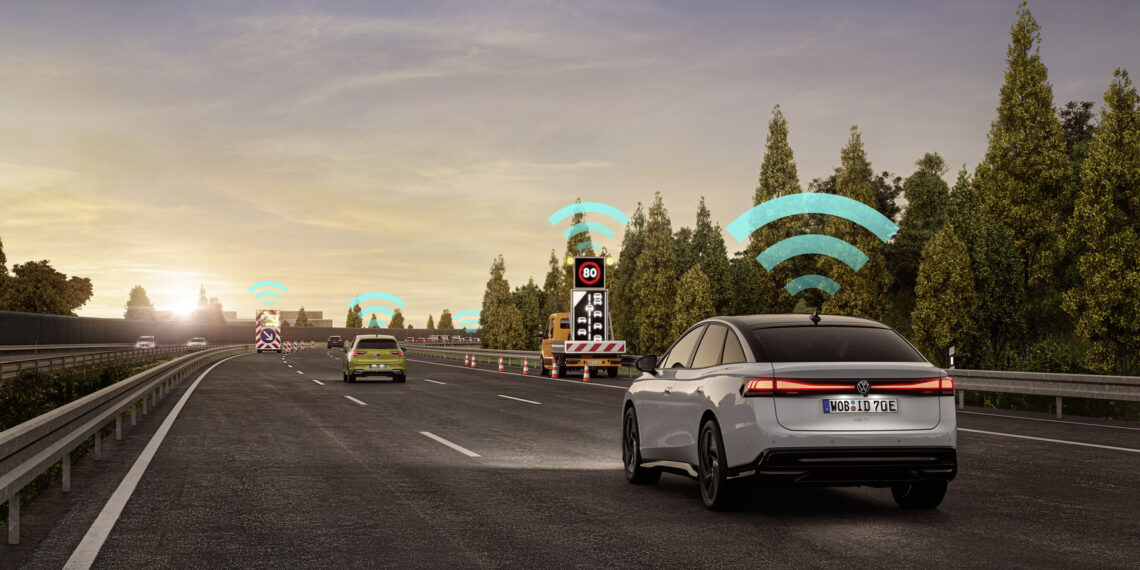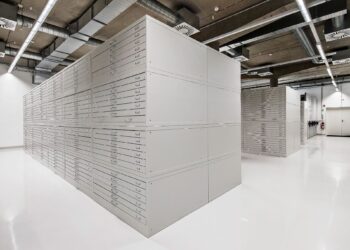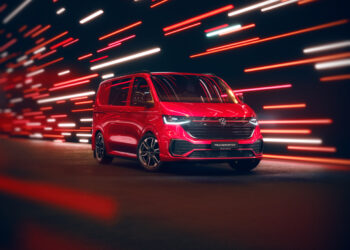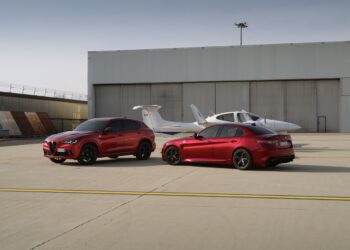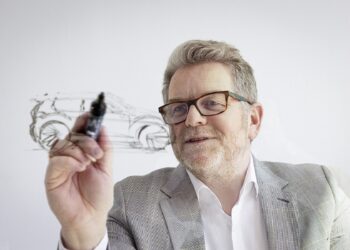VW recently announced that it has already produced more than two million vehicles equipped with Car2X technology, whose connectivity allows communication between vehicles, alerting drivers to potential dangers on the road, proving to be a highly relevant technology for reducing the occurrence of road accidents. The system operates on the principle of real-time local collective intelligence, issuing alerts on the instrument panel that warn the driver about traffic jams, accidents, road works, or, for example, the approach of emergency vehicles, even being able to automatically reduce the volume of music. This way, the driver can, for instance, anticipate a dangerous situation by applying the brakes to avoid it.
Another aspect that is also gaining increasing relevance is communication with the surrounding infrastructure. Examples include smart equipment placed on the road sides, capable of sending alerts to vehicles about drivers traveling in the wrong direction, the presence of pedestrians, animals, or objects on the road, and also to warn about severe weather phenomena.
“With the increasing use of Car2X, road traffic can become more cooperative and preventive in many situations. This technology is, therefore, a key element of our ‘Vision Zero’, for road traffic without serious accidents. Furthermore, Volkswagen is laying the groundwork for the future of mobility, which will be safer, smarter, and more connected,” says Veronica Lehr, Director of Driver Assistance Systems in VW’s Development department.
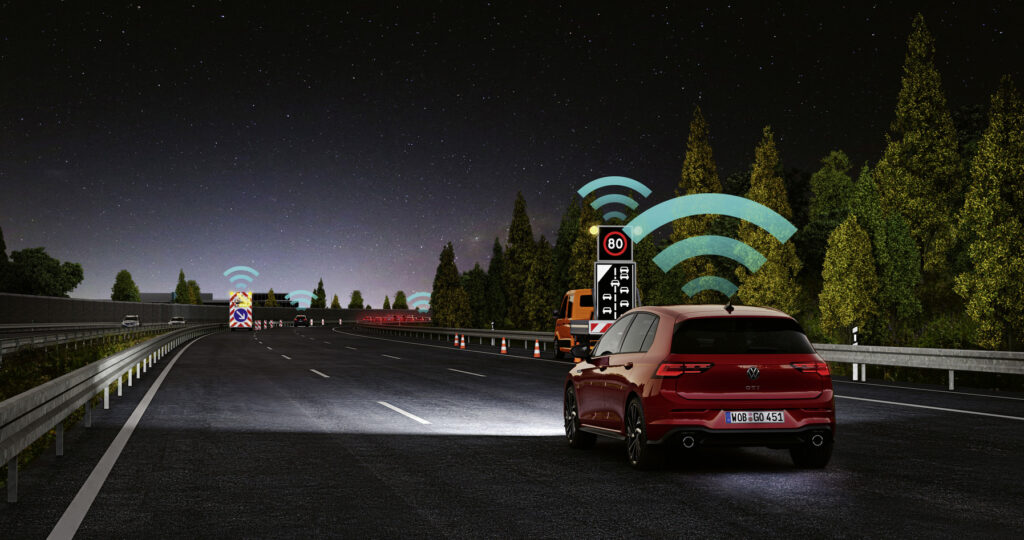
According to the official statement from the German brand, several European countries are investing in the technology. From Austria to Germany, including Italy, Spain, the Czech Republic, Hungary, and Slovenia, the technology is increasingly becoming a reality. The Austrian highway network, for example, is already fully equipped with communication units on its shoulders. Roadside assistance services also use the technology to share information with road users with Car2X, within a radius of up to 800 meters.
The technology, the Wolfsburg brand assures, still has a great margin for evolution. In the future, it is expected that it can also be implemented in bicycles, motorcycles, trucks, and buses, ensuring almost total network interconnection. There are no costs associated with information sharing between vehicles, as the Wi-Fi network is used instead of a mobile telecommunications network.

